Table of Contents
Key Takeaways
- B-Vitamins and multivitamins are crucial for brain health and neurotransmitter synthesis.
- Acetylcholine’s role in ADHD can be supported with nootropics like ALCAR and CDP-Choline.
- Nootropics like Ashwagandha and Bacopa Monnieri help repair damaged neuroreceptors in ADHD.
- Noopept enhances cognition, memory, and provides neuroprotection.
- Combining specific nootropics with essential vitamins can optimize brain function for managing ADHD symptoms.
Depending on the severity of your ADHD symptoms, you may be able to use nootropics as an alternative to prescription stimulants like Adderall, Ritalin, Vyvanse and their variations.
I experimented for a year by using nootropics in place of the 20 mg of Ritalin I had been using 3-times a day for several years. And for the most part, I was successful in taming my Adult ADD symptoms.
Adult ADD Nootropic Stack
The ADD/ADHD stack I use includes:
- Mind Lab Pro
- Performance Lab® Energy – twice per day
- CDP-Choline – twice per day
- ALCAR – 750 mg 1-time per day
- L-Tyrosine – 500 mg 3-times per day
- Sulbutiamine – 400 mg twice per day
- Aniracetam – 750 mg twice per day
- Vinpocetine – 10 mg 3-times per day
- Performance Lab® Omega-3 – 3 GelCaps per day
- 1 tablespoon unrefined Coconut Oil or MCT Oil– 3-times per day
- Performance Lab® NutriGenesis Multi – 4 caps per day
During my one-year stimulant holiday, the ingredients in Mind Lab Pro along with L-Tyrosine, CDP-Choline, and ALCAR (included in Performance Lab Energy) kept my dopamine, norepinephrine, and acetylcholine levels high enough to maintain focus, motivation and improve my memory. Vinpocetine kept my brain blood flow at optimal levels. And Aniracetam and Sulbutiamine improved my mood.
But after a year I decided to go back to using 20 mg of Ritalin twice per day. Because my workload had me writing 10 hours per day. And maintaining working relationships with 2 or 3 clients at once.
By adding Ritalin back to my stack I was able to reduce the time it would take to complete a project from 3 days to 1 ½ days. Proof to me that my overall brain health couldn’t make it with nootropics alone.
The beauty of continuing to use L-Tyrosine, CDP-Choline, and ALCAR even after I started using Ritalin again was that I avoided the stimulant “crash” that is so common late afternoon when using stimulants. And I was able to reduce the original 20 mg Ritalin 3-times per day down to only twice per day.
And I have not experienced building up tolerance to Ritalin that is so common when using stimulants to treat ADD or ADHD.
Your situation may be different, or ADHD symptoms not as severe. Only you can decide if nootropics can replace ADHD meds. The stack I describe on this page is designed to be used with or without stimulant meds.
Whether you use this stack with meds or without, you’ll need to discover for yourself what dosages of each nootropic are ideal for you. Because the amounts that work for me may not work as well for you. You may need less NALT and/or ALCAR.
Experimenting is the key to success with nootropics. And knowing as much as you can about what’s going on in your brain that needs to be fixed. But after many years of recommending this ADHD nootropic stack to people just like us around the world, we know this works.
The pre-made nootropic stacks mentioned in this post include:
Prescription “Smart Drugs” vs. Nootropics for ADHD
This post is in response to many emails and questions I’ve been getting about how to treat Attention Deficit/Hyperactivity Disorder (ADHD) or Attention Deficit Disorder (ADD) with nootropics.
So if you are dealing with ADHD, hopefully this post will help. Especially if you are using stimulants like Ritalin, Adderall, Vyvanse, Focalin, or any of the other stimulant prescribed for ADD/ADHD. Or you are trying to deal with ADHD naturally by avoiding prescription stimulants.
This information can also help if you are a student or executive who uses prescription “smart drugs” like Adderall or Modafinil to boost productivity.
Here we’ll dig into the causes of ADHD or ADD in your brain. Symptoms associated with ADHD. And what you can do using nootropics, or nootropics stacked with stimulants to correct ADHD symptoms.
I’ll also include ways to potentiate the effectiveness of prescription stimulants with nootropics so they work better.
If you’ve never ‘officially’ been diagnosed with ADHD, but some of this resonates with you, you could be ADHD or ADD. And this may point you to some answers.
I’ve been ADD all my life. (ADD is ADHD without the hyperactivity). But it wasn’t until about 16 years ago, that a very wise psychiatrist identified what was going on. And why I had been struggling with focus and other problems with behavior. That no amount of self-help books on focus and management could ever correct.
Ritalin turned the lights on for me. And completely changed my life for the better. This was the seed that sprouted my interest in neuroscience and nootropics. And ultimately launching Nootropics Expert®
What is ADHD & ADD?
Attention Deficit/Hyperactivity Disorder (ADHD) or Attention Deficit Disorder (ADD) are associated with attention and executive function in your brain.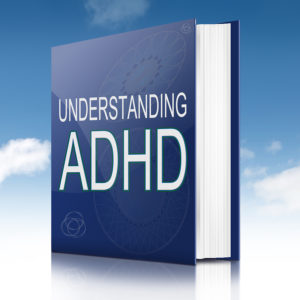
Your prefrontal cortex directs behavior, thought and feeling which are all associated with working memory. This fundamental cognitive function is what most “healthy” people take for granted, are what make up executive function.
This executive function and working memory give you the ability to:
- Regulate your attention
- Inhibit inappropriate behavior and thought
- Monitor your actions
- Plan and organize your future
If you can’t focus on the task at hand, blurt things out at inappropriate times, have little control over your emotions or actions, and can’t seem to stick to that careful set of goals you wrote down, you may be ADHD.
The Role of Norepinephrine and Dopamine in ADHD
Norepinephrine and dopamine are the primary neurotransmitters involved in ADHD because they play an essential role in attention and thinking.[i]
The “inattentive” type of ADHD is related to issues with the norepinephrine, and the “hyperactive and impulsive” type of ADHD is linked to dopamine dysfunction.
These two neurotransmitters work in concert to maintain alertness, increase focus, sustain thought, effort, and motivation. The only difference between the two is the presence of a hydroxyl group. And dopamine is the precursor to norepinephrine synthesis in your brain.[ii]
Much of what we read about ADHD focuses on dopamine’s function in your brain. But norepinephrine (NE) plays a critical role in activating your reaction to events. And how you respond to the event.[iii] NE is essential for collecting information coming in through your senses. And then modulating your brain’s response.
Any disruption in this NE system can result in ADHD, Post Traumatic Stress Disorder (PTSD), sleep disorders and more.[iv]
For example, NE working with postsynaptic α2-adrenoceptors (α2-AR) in your brain play an essential role in helping you focus and eliminate distractions when you’re paying attention to something.[v]
This is just one example of what goes wrong with ADHD brain function. My point in bringing this all up is not to overwhelm you with neuroscience.
But to make clear that simply suggesting too much or too little of a single neurotransmitter like dopamine cannot explain the complexity of ADHD.
So using a nootropic like L-Tyrosine to amp up dopamine in your brain is often not enough to take care of ADHD symptoms. Or using Adderall with someone who has a problem with alpha2-receptor binding with norepinephrine may not get much benefit.
This is the reason that experimenting with various stimulants and/or nootropics is often the only way to find a long-term solution to keeping ADHD under control. And why some respond better to a drug like Ritalin and not as well to Adderall. Or vice versa.[vi]
And recent research shows serotonin and acetylcholine are involved too. Mostly the “hyperactivity” part of ADHD which includes movement, inattention, and impulsivity.[vii]
Smart Drugs Used to Treat ADHD Symptoms
If you are truly and clinically ADHD or ADD, it is unlikely that optimizing your diet, getting plenty of sleep, using nootropics, and exercising regularly will get the symptoms of ADHD under control.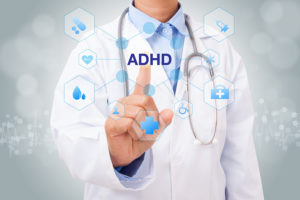
The most severe forms of ADHD often benefit from using prescription medication. Otherwise known as “smart drugs” in some circles, these meds are typically amphetamines or methylphenidate.
The amphetamine-class of ADHD prescription drugs includes Adderall (75% dextroamphetamine salts and 25% levoamphetamine salts), Dextroamphetamine, and Vyvanse (Lisdexamfetamine).
The methylphenidate-class of ADHD medications includes methylphenidate (Ritalin) and its variants like Concerta, and Focalin.
Adderall and Ritalin both work with dopamine and norepinephrine in your brain. But through different mechanisms of action.
Ritalin is a pure uptake inhibitor of dopamine and norepinephrine without any other presynaptic activity.[viii] Adderall on the other hand, has additional presynaptic activity, releasing dopamine and norepinephrine from presynaptic neurons.
The idea for the last 60 years or so, has been if we could boost dopamine and norepinephrine in the brain, ADHD symptoms would go away. As long as we’re taking the medication.
Why Prescription Attention Deficit Hyperactivity Disorder Meds Often Don’t Work
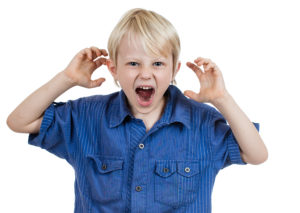 In an ideal world, taking one pill 2 or 3 times a day to treat ADHD would put your life back on track. And help you function like a ‘normal’ person.
In an ideal world, taking one pill 2 or 3 times a day to treat ADHD would put your life back on track. And help you function like a ‘normal’ person.
But real-world results often don’t work out as well as theory. For several reasons. For example, what if there’s not enough dopamine or norepinephrine in your brain in the first place? Then stimulants will not work as well as planned because they haven’t the neurotransmitters in place to work with.
You could also have problems with not enough or damaged neuroreceptors. Natural aging processes can slow blood flow or inhibit the production of neurotransmitters. A lack of acetylcholine could prevent your neurotransmitters from doing what they were designed to do.
This is where nootropics can help save the day in treating the symptoms of ADHD.
Optimizing Dopamine & Norepinephrine
 One of main culprits contributing to ADHD symptoms is a lack of dopamine (DA) and norepinephrine (NE) in your brain. Or your brain is not using the available DA and NE effectively.
One of main culprits contributing to ADHD symptoms is a lack of dopamine (DA) and norepinephrine (NE) in your brain. Or your brain is not using the available DA and NE effectively.
Stimulants like Adderall and Ritalin work to boost levels and use of these two critical neurotransmitters.
Production of dopamine and norepinephrine in your body and brain follows this metabolic pathway:
Phenylalanine → Tyrosine → L-DOPA → Dopamine → Norepinephrine
Dopamine is converted to norepinephrine by the enzyme dopamine β-monooxygenase, with O2 and ascorbic acid (Vitamin C) as cofactors.
Norepinephrine can be further converted into epinephrine by the enzyme phenylethanolamine N-methyltransferase with SAM-e as cofactor.
Nootropics to boost dopamine include:
-
-
- L-Tyrosine – L-Tyrosine is the precursor to producing dopamine in your brain. L-Tyrosine enhances working memory, executive function, creative flow states, reduces stress, improves mood and is anti-anxiety.
Suggested dosage of L-Tyrosine for ADHD is 350- 500 mg twice per day. I successfully stack 500 mg of NALT or L-Tyrosine 3-times per day. Once each time I dose with Ritalin, and a last dose mid-afternoon to prevent a stimulant crash later in the day.
- Mucuna Pruriens (L-Dopa) – Mucuna works as an antioxidant and heavy metal chelator, improves memory & cognition, reduces depression and boosts libido. L-Dopa is also the direct precursor to dopamine. Suggested dosage of Mucuna Pruriens is 250 – 500 mg per day.
But if you’re just starting out with nootropics, I highly recommend using L-Tyrosine or NALT instead of Mucuna Pruriens. Because Mucuna can be more difficult to dose since it directly stimulates the production of dopamine. L-Tyrosine and NALT are more ‘forgiving’ when it comes to dosage.
- Phosphatidylserine (PS) – PS can help improve alertness, attention, cognition, memory, recall and mood, and lower anxiety. All issues associated with ADHD. Phosphatidylserine is a phospholipid component of the membrane encasing every one of your brain cells. PS helps maintain the fluidity and permeability of brain cells. Improving the flow of dopamine and acetylcholine. Suggested dosage of PS is 1—mg 3-times per day.
- Pine Bark Extract – Pine Bark extract helps prevent decreases in dopamine and norepinephrine. And the glutathione (GSH) and GSH-disulphide reductase (GSSG-R) ratio. Neurotransmitter problems which contribute to hyperactivity in ADHD. Pine Bark extract also helps boost blood flow in the brain by increasing nitric oxide which helps dilate blood vessels. And it helps reduce oxidative stress, membrane damage, DNA damage, inflammation, and glycation.
I’ve found one of the most potent forms of Pine Bark extract comes in both Mind Lab Pro® and Performance Lab® Mind.
- L-Tyrosine – L-Tyrosine is the precursor to producing dopamine in your brain. L-Tyrosine enhances working memory, executive function, creative flow states, reduces stress, improves mood and is anti-anxiety.
- N-Acetyl L-Cysteine (NAC) – NAC is an amino acid that regulates the amount of glutamate and dopamine in your brain. NAC can be used to treat the symptoms of ADHD. And even helps eliminate some of the negative side effects associated with prescription ADHD stimulants. Suggested dosage of NAC is up to 600 mg 3-times per day.
A word of caution here in boosting the catecholamines dopamine and norepinephrine. Too much of either is not a good thing. In fact, excess levels of either will throw your neurotransmitter levels out of balance. And can cause anxiety, insomnia and panic attacks.
Taming Hyperactivity with Nootropic Supplements
The “H” in ADHD stands for hyperactivity. Boosting levels of dopamine and norepinephrine can help balance out hyperactivity. And help calm and focus your mind. But often simply boosting or balancing these neurotransmitters is not enough.
Recent studies show that serotonin and dopamine interaction also play a role in ADHD.[ix] Serotonin is involved in the uptake, synthesis and breakdown of dopamine in your brain. Problems with serotonin seem to contribute to behavior and impulse control.
Much more research needs to be done in this area of ADHD. But we can help control and balance serotonin with nootropics.
- 5-HTP – This amino acid is synthesized from the amino acid tryptophan. And 5-HTP is the immediate precursor to serotonin in your brain.5-HTP can help relieve anxiety and depression, fibromyalgia, insomnia, migraines and likely the hyperactivity, depression and anxiety associated with ADHD. Suggested dosage of 5-HTP is 50 mg up to 3-times per day. Please see my dosage notes and warnings before you try supplementing with 5-HTP.
-
-
- Ginseng – Ginseng helps calm anxiety, and boost attention, concentration and memory. Ginseng provides neuro-protective effects on the dopaminergic-pathway which can help with ADHD. And ginseng is a serotonin and norepinephrine reuptake inhibitor (SNRI).Suggested dosage of Ginseng is 100 – 400 mg per day.
-
- L-Theanine – L-Theanine commonly found in green tea helps boost alpha and theta brain waves, is anti-anxiety, boosts cognition and memory and reduces insomnia. L-Theanine also helps boost GABA, serotonin and dopamine levels in your brain. Suggested dosage of L-Theanine is 150 mg 2 – 3-times per day.
-
- Rhodiola Rosea – Rhodiola Rosea helps improve alertness, energy, memory and mood, is anti-anxiety and antidepressant, reduces fatigue and boosts memory and concentration. Rhodiola influences serotonin and norepinephrine levels in your brain. Suggested dosage of Rhodiola Rosea extract is 150 – 200 mg per day.
-
- Saffron – Saffron acts as a dopamine and norepinephrine reuptake inhibitor. Similar to how Ritalin works. A randomized double-blind study was conducted with 54 children 6-17 years old who were given 20 – 30 mg methylphenidate or 20 – 30 mg Saffron per day for 6 weeks. At the end of the study researchers concluded, “Short-term therapy with a saffron capsule showed the same efficacy compared with methylphenidate.” Suggested dosage of Saffron is 30 mg per day.
-
- Vitamin B6 (Pyridoxine) – Vitamin B6 helps your brain make serotonin, norepinephrine and melatonin. Suggested dosage of B6 is up to 100 mg per day.
-
- Vitamin B9 (Folate) – Folate (NOT folic acid) as a nootropic helps your brain make dopamine, epinephrine, norepinephrine and serotonin. Suggested dosage of Folate is 400 mcg per day.
-
- Vitamin B12 (methylcobalamin) – is a cofactor in the synthesis of neurotransmitters acetylcholine, dopamine, GABA, norepinephrine, and serotonin. Suggest dosage of B12 is 100 mcg per day.
B-Vitamins are Critical in Controlling ADHD
Take note that several of the B-Vitamin group are involved in the production of the neurotransmitters involved in ADHD. I recommend adding a good B-Vitamin Complex that include methylfolate (not folic acid) and methylcobalamin (not cyanocobalamin) to your stack. Both in a pure nootropic stack as well as when using any of the ADHD prescription stimulants.
But it’s not only the B-Vitamins that are required for a healthy, fully functioning brain. We also need each of the 13 vitamins and 13 minerals needed for everything from blood flow, neurotransmitter synthesis and release, brain signaling, and neuroprotection.
I’ve found the easiest way to make sure my ADD brain gets all the vitamins and minerals it needs every day is to also use a multivitamin/mineral supplement.
The best I’ve found so far is the multivitamin called Performance Lab® NutriGenesis Multi. It’s better than the “raw-food” multi I was using for years. And makes a difference I can actually feel.
But please note that this multi is in addition to a B-Vitamin Complex because the ADHD brain needs more of these critical nutrients than what is normally in any good multivitamin.
The Role of Acetylcholine in ADHD
Researchers at Vanderbilt University Medical Center discovered that there are three types of ADHD.
We’ve already covered the “inattentive” type that is related to issues with the norepinephrine transporter gene. And the link to the dopamine transporter gene in the “hyperactive and impulsive” type.
But the research team now report that a variation in the choline transporter gene is associated with a “combined” type of ADHD. Symptoms include both inattention and hyperactivity/impulsivity.
Choline is required to synthesize acetylcholine (ACh) which is needed for memory, motor-control, focus, learning, concentration, and cognition.
If you have the “combined” type of ADHD it’s likely due to a mutation in this choline transporter gene variation.
Nootropics to boost acetylcholine include:
- ALCAR (Acetyl-L-Carnitine) – ALCAR donates am acetyl group in the presence of Coenzyme-A for the synthesis of acetylcholine. And it’s also a shuttle transport for fatty acids through brain cell membranes. It shuttles fatty acids into mitochondria for ATP synthesis, and shuttles toxic byproducts out.
Research from the Linus Pauling Institute shows ALCAR will restore mitochondrial function, replenish age-related changes to mitochondrial structure, and helps replenish acetylcholine levels to your brain and body.
And other studies show that ALCAR stimulates nerve growth factor. Helping support survival and growth of neurons. Which is particularly important for the ADHD brain and especially when using prescription stimulants that may be tough on neurons.
- Alpha Lipoic Acid (R-LA) – Alpha Lipoic Acid increases acetylcholine production by activation of choline acetyltransferase and increases glucose uptake. This process supplies more Acetyl-CoA for the production of acetylcholine.
Alpha Lipoic Acid enhances insulin-stimulated glucose transport and metabolism for better brain cell performance. And R-Lipoic Acid provides strong antioxidant support because it helps regenerate and recycle existing antioxidants in your brain including Vitamins C & E, glutathione, and CoQ10.
I’ve since switched the ALCAR supplement in my ADD stack to Performance Lab® Energy because this pre-formulated energy stack contains my preferred dose of ALCAR. But note that I also take another 500 mg of ALCAR with L-Tyrosine late afternoon to prevent a stimulant crash.
Performance Lab® Energy also contains Alpha Lipoic Acid and ALCAR which helps my ADD brain produce acetylcholine.
- CDP-Choline (Citicoline) – Citicoline helps synthesize phosphatidylcholine (PC), a major phospholipid found in brain cell membranes. And provides choline for the synthesis of acetylcholine while providing antioxidant activity.
The CDP-Choline (Citicoline) in my ADD stack is supplied by Mind Lab Pro® which is the base of my nootropic stack.
But a suitable alternative to MLP is Performance Lab® Mind which contains the branded form of citicoline called Cognizin®.
Performance Lab® Mind and Mind Lab Pro® also contain L-Tyrosine, Phosphatidylserine (PS), and Maritime Pine Bark extract.
Repairing Neuroreceptors Needed to Control ADHD
One of the issues with neurotransmitters and ADHD are damaged or non-existent receptors. Dopamine, norepinephrine and serotonin have less receptors to bind to for cognition and mood control.
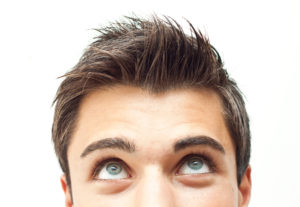
Once again, nootropics come to the rescue in helping control ADHD. You can add one of these nootropics to your stack to help boost neuron and receptor health.
- Ashwagandha – This adaptogen, Ashwagandha helps reduce anxiety and depression. And helps reconstruct axons, dendrites and synapses involved in neurotransmitter signaling in your brain. Suggested dosage of Ashwagandha extract is 250 – 500 mg per day.
-
- Bacopa Monnieri – Bacopa helps boost memory and cognition, improves mood, and reduces stress. This adaptogen affects brain levels of acetylcholine needed for neurotransmitter signaling. And the two active components of Bacopa Monnieri called bacosides A and B not only improves signaling of electrical impulses between neurons in your brain. Bacosides also help rebuild damaged neurons. Suggested dosage of Bacopa is up to 450 mg per day.
-
- Lion’s Mane – Lion’s Mane Mushroom is known for stimulating Nerve Growth Factor, improving cognition and memory, and relieving depression. Lion’s Mane stimulates the repair and creation of neurons in your brain. Neurons needed for dopamine and norepinephrine to control ADHD. Suggested dosage of Lion’s Mane Mushroom starts at 500 mg per day. Note: that there’s an effective 500 mg dose of Lion’s Mane full-spectrum fruiting body in each dose of Mind Lab Pro®
-
- Noopept – Noopept helps boost cognition, memory, learning, perception, logical thinking and mood. Noopept increases Nerve Growth Factor, and Brain-Derived Neurotrophic Factor (BDNF) critical for neuroplasticity and Long-Term Potentiation critical for long-term memory. Noopept also prevents the release of excess glutamate in your brain. Providing potent neuroprotection for neurons and reducing damage. Suggested dosage of Noopept is 10 – 30 mg per day.
Please note that I haven’t linked through to supporting clinical studies for each of the nootropics I listed above. But you can click through to my full review of each nootropic for extensive research supporting each supplement.
Nootropics for Kids
ADHD and ADD is most often diagnosed in children. The latest statistics (2011) from the CDC in the USA shows about 11% of children 4 – 17 years of age (6.4 million) have been diagnosed ADHD.[x] And that’s just for the USA.

Although ADHD is usually first diagnosed in children, it often lasts into adulthood. I sometime wonder how my life would have been different if I had been declared ADD when I was a kid.
But it wasn’t until the late 1960’s that the American Psychiatric Association formally recognized ADHD as a mental health disorder. I wasn’t declared Adult ADD until much later.
The thing is many parents are wary about putting their children on powerful, prescription ADHD meds. Kids’ brains continue to develop until your early 20’s. So is it a problem messing with brain chemistry at such a young age? Only time will tell and if the benefits outweigh any potential risk.
Hence the reason why parents are looking for ‘natural’ alternatives like nootropics to treat ADHD in children. But are nootropic supplements any safer than prescription stimulants?
Common sense tells me that using L-Tyrosine could be safer than Ritalin for boosting dopamine. And Rhodiola Rosea could be safer than stimulants or antidepressants for taming hyperactivity.
But many children with ADHD, natural supplements may not be enough. I’m not a doctor, and don’t even play one on TV. I’m an ordinary biohacker who has learned as much as I can to help myself. And fix my own cognitive performance issues. Including Adult ADD.
So I highly recommend you find and work with an open-minded psychiatrist with your child. You may be pleasantly surprised to find you may be able to reduce or eliminate prescription ADHD meds altogether to enhance cognitive functions. And maybe not. But the long-term health of your child could be worth the time investment to find out.
In Summary
I’ve been wanting to write this post since I started Nootropics Expert®. If you are ADHD or ADD, I hope you found this useful. And I’d appreciate your feedback, and share your experience with treating ADHD with nootropics in the comments section of this post below.
Please share this post with anyone you think would benefit. Including discussions about nootropics for ADHD on reddit or Longecity.
One final note. Neurotransmitter balance is key to taming ADHD. I strongly caution you to take it slow if you’re just starting out with nootropics. Carefully read each of the extended articles in the List of Nootropics you are considering trying.
You need to be careful about side effects, prescription drug interactions, dosages and how your body reacts to each supplement to ensure healthy brain function.
But I’m confident that with careful planning and a long-term commitment, your cognitive enhancement will be just as successful as I have been in living and thriving with my Adult ADD.


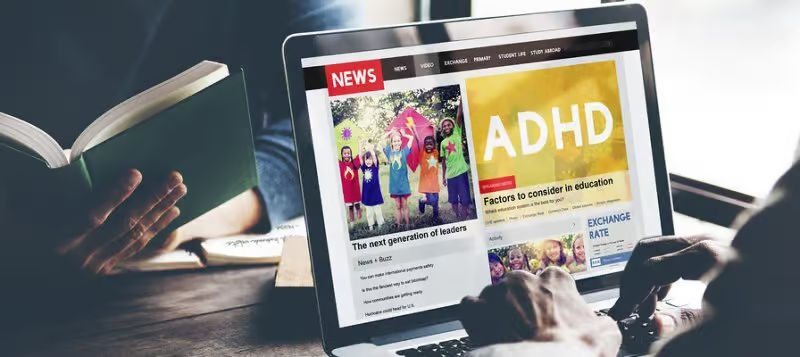





Join The Discussion - 863 comments
shirley
February 20, 2019
Great. That answered my question about using it along with my Adderall. Another reason why I only chose a select few is because of the price. I know you can’t put a price on health, but adding that stack list up…there is no way I can afford that list every month 🙁
David Tomen
February 21, 2019
Shirley, if I was “stranded on a desert island” I’d choose NALT or L-Tyrosine, ALCAR, DHA, a high quality Multi or B-Complex supplement and coconut oil. That is a fairly inexpensive stack but very effective.
shirley
February 20, 2019
I find your post VERY interesting! I have inattentive ADHD, not hyper, 0 motivation, (husband calls me lazy), a bit of social anxiety, and very mild depression (anti depressants make it worse). I take 20mg of Adderall XR once a day, Omega 3 (4:1 ration), B-complex (methylation) when I remember. I really want to add try nootropics along with my Adderall: NALT, Rhodiola, Mucuna, to help with the mild depression, low libido and motivation. i’m afraid of taking too many because more than likely I will forget to take them, and can be a little overwhelming.
Any suggestions if that is the right stack and if they can be taken with Adderall?
David Tomen
February 20, 2019
Shirley, the nootropic stack described in this post was designed to support those using prescription stimulants including Adderall and Ritalin. But for it be most effective dosage and timing must be following exactly. Including morning, noon and late-afternoon.
If you still need more of a boost for libido just as example, you could add Mucuna Pruriens. But I would not recommend messing with the original stack until you find out how it works for you. And I think once you condition yourself to maintain the discipline of 3-doses per day, you won’t forget. 🙂
Robert
February 17, 2019
Hello David,
Can I add vinpocetine, b-complex(life ext),noopept on your add/adhd stack to prolong the focus? and I usually take 30-40mg of piperine and 1 tablespoon of virgin coconut oil every time I take the stacks is that alright?
David Tomen
February 18, 2019
Robert, yes you can add those to your stack. But be careful with Piperine because you don’t want to go over the maximum daily dosage.
Daniel Hollis
February 9, 2019
Hi David, loving your YouTube vids and great to hear advice on Nootropics from a fellow ADHD sufferer. With your recommended stack that you say you combine with ritalin; what would you recommend in how I can get the other nootropics on your stack that aren’t an ingredient in the mind lab pro? Also, I live in the UK, do your suppliers of the nootropics you stack ship to the UK? Regards, Daniel
David Tomen
February 9, 2019
Daniel, I get most of the rest of my supplement through Amazon. Some are stocked by them and others from vendors who use Amazon as a storefront. In a pinch and when I need something fast, I get it from my local Vitamin Shoppe which is one of the major supplement retailers here in the USA.
Alex
February 2, 2019
Hello David, I am planning to buy Ritalin through an online blackmarket to add to my stack. I already have all the basic components but I also want to add Ritalin. I am not yet diagnosed with ADD/ADHD but I have a strong feeling that I am ADD/ADHD I fully resonate with your stories.
David Tomen
February 3, 2019
Alex, please be really cautious about what you are getting. Because there is no guarantee that the drug you are buying is pure. I personally found that I could control my Adult ADD symptoms with just the nootropics described in this post.
Alex
February 8, 2019
I understand, I will try the nootropic stack first and see how I feel. I’m planning to buy performance lab whole food and energy, and rely on mind lab pro for the vinpocetine supply since its not available in nootropics depot is it fine? and if I already have the whole stack what kind of food should I eat? and how often? I dont have any idea when should I take it and when and what to eat.
I can basically have all the stack listed above and also a life extension b complex added on the list.
David Tomen
February 8, 2019
Alex, the stack suggested in the yellow highlight box above says twice or three times per day. Morning, noon, and if a third dose of something is needed that would be around 4 PM.
Each of the nootropics has a link through to a complete review which includes dosages suggestions and whether it is fat or water soluble. I take my stack each time with a tablespoon of coconut oil instead of worrying about taking it with a meal with healthy fats.
And Mind Lab Pro has since changed their formula and no longer use Vinpocetine. So I get mine from Amazon here in the USA.
Beth
January 30, 2019
Hi David,
I’m so glad you wrote this article. I can completely relate when you say all the self help books in the world can’t help when the problem is your brain.
I’ve never been formally diagnosed but my lack of focus, inability to complete tasks, and hesitancy to make decisions tell me I have ADD. At the very least, executive function disorder. I took the Amen Clinic’s online ADD test and it said that I’m a combination of 4 types: Overfocused ADD (which I have no idea how that’s possible), Temporal Lobe ADD, Limbic ADD and Anxiety ADD. ADDitude’s online test also showed I have ADD.
I’m 48, and take 50 mcg Synthroid and 5 mcg Cytomel for Hashimoto’s Thyroiditis, along with many supplements recommended/prescribed by my functional medicine doctor. I also take 5mg of Lexapro with CatecholaCalm daily for anxiety. I never realized I truly suffered from anxiety and couldn’t understand why I couldn’t be like everyone else. I freelance while I’m bootstrapping a business and the stress is unlike anything i’ve experienced. The lexapro with the CatecholaCalm helps. I totally get what you mean when you say your stack helps with the meds; mine too.
I exercise and follow an AIP diet and still struggle with my ADD symptoms. I’m having trouble finding information about what ADD med I can take with having Hashimoto’s (the autoimmune version of hypothyroid). The little bit I have found suggests stimulants further deplete the thyroid.
Experiencing what is like to have anxiety under control with lexapro has made me realize how much I allowed myself to needlessly suffer, and delayed the growth of my business. I’m ready to take an ADD med because I’m tired of suffering and not taking one is affecting my life and business. I recently started taking 3/4 tsp of Lions Mane daily and 350 mg of NALT 1-2x a day. The first day I was definitely focused. Now I’m not.
Is there an ADD med that can be taken with my thyroid meds and Lexapro? Would I be able to use nootropics alone – if so, which nootropics would you say are absolute musts? Taking so many supplements gets expensive, and I already take a lot.
Thank you for your help,
Beth
David Tomen
January 30, 2019
Beth, if you are truly ADD then you may benefit from using a prescription stimulant like Ritalin. I am severely hypo but have it under control with NP Thyroid. And using Ritalin is no problem.
But I did go an entire year with zero ADD symptoms by using the nootropic stack described in this post. If you decide to try it using just nootropics you must follow the dosage instructions and use ALL of the supplements described here. You may be able to get away with eliminating Aniracetam but the others are a must.
Beth
January 31, 2019
David. Thank you so much for your reply! You have no idea how encouraged I am to know that you have hypothyroidism too and have overcome ADD. I have been doing my reading and found that a general practitioner can prescribe Strattera (is the same true for Ritalin?). In your experience, would you have your GP prescribe something or should you go to psychiatrist? I’m ecstatic to try your stack minus the racitam.
Beth
David Tomen
January 31, 2019
Beth, please get familiar with the exact mechanism of action for each stimulant drug you are considering before seeing a doctor. Strattera for example works very differently in your brain than Ritalin. Wikipedia is generally a good place to start with this type of search.
A psychiatrist should be well-versed on each of the meds to treat ADD. A general practitioner is likely not familiar. In either case I’ve found that it takes awhile until you find a doctor you can trust and that is willing to work with you on something as complicated as ADD.
Kyle
January 25, 2019
Hello David I want to add Ritalin on your nootropic stack for ADD/ADHD any merchants that you can recommend?
David Tomen
January 26, 2019
Kyle, I highly recommend each of the nootropics reviewed in this post if you are dealing with ADHD.
Ritalin is a controlled substance and only available by prescription from your psychiatrist.
And yes, you can dose 3 capsules of Mind Lab Pro at once. Opti Nutra suggests a maximum dose of 4 capsules per day. I’ve found for best results it’s better to take 2 capsules in the morning, and then 1 or 2 capsules again at noon.
Robert
January 25, 2019
David,
I bought all the necessary ingredients for the ADD/ADHD stack in nootropics depot but I cant buy the PF energy and whole food because Im all out of budget at this time. What alternatives do I need to fulfill the lacking ingredients for this stack? I currently have Mind Lab Pro,ALCAR
,NALT ,Sulbutiamine ,Aniracetam,DHA (Omega-3) ,1 tablespoon Coconut Oil.
David Tomen
January 25, 2019
Robert, you have the basics which will work fine as long as you follow dosage recommendations including timing. I would ad a good B-Complex supplement if you can. Life Extension’s BioActive Complete B-Complex is only about $10.
Kyle
January 25, 2019
David, I don’t really know how to time this to be honest I would like to ask what would you strongly recommend? And for Mind Lab Pro is it ok to dose 3 capsules in one go?
Robert
January 28, 2019
Hello David I bought Berocca Performance its vitamin b complex+ Ascorbic Acid + Calcium + Magnesium + Zinc.
This is the breakdown on its Ingredients
Vitamin B1 (As thiamine monophosphoric acid ester chloride dihydrate) – 15mg
Vitamin B2(As riboflavin sodium phosphate) – 15mg
Vitamin B3(As Nicotinamide) – 50mg
Vitamin B5(As calcium pantothenate) – 23mg
Vitamin B6(As Pyridoxine Hydrochloride) – 10mg
Vitamin B12(As Cyanocobalamin) – 10mcg
Vitamin C (As Ascorbic Acid) – 500mg
VItamin H (As Biotin) – 150mcg
Folic Acid – 400mcg
Calcium(as Calcium carbonate granulated and calcium pantothenate) – 100mg
Magnesium ( as magnesium carbonate granulated and magnesium sulfate dihydrate) – 100 mg
Zinc ( as Zinc citrate trihydrate) – 10mg
This is my vitamin b complex to add for my stack I currently have Mind Lab Pro,ALCAR
,NALT ,Sulbutiamine ,Aniracetam,DHA (Omega-3) ,1 tablespoon Coconut Oil.
What do you think david?
David Tomen
January 28, 2019
Robert, your stack is OK but I suggest getting a better B-Complex supplement. One that contains the vitamins your body can use and not synthetic folic acid and cyanocobalamin.
Same thing with the calcium, magnesium and zinc used in this supplement which are basically ground up rock. Not the type of vitamins and minerals your body and brain recognize as food.
Robert
January 28, 2019
Thanks for the informative response David.
I will buy another one but what ingredient should I look for and avoid in a b complex vitamins? What would be the best brand?
David Tomen
January 28, 2019
Robert, you want Vitamin B9 (folate) and not folic acid. And Vitamin B12 (methylcobalamin) and not cyanocobalamin. I’ve been using Life Extension’s BioActive B-Complex because it is a good dosage and the right form of ingredients: https://amzn.to/2MEb1os
For more on selecting the right vitamins and minerals please see my post here > https://nootropicsexpert.com/how-to-select-the-best-multivitamin-for-brain-function/.
And tips of choosing high quality nootropic supplements here > https://nootropicsexpert.com/7-tips-for-choosing-the-highest-quality-nootropic-supplements/
Robert
January 28, 2019
Thank you Robert, Very cool and informative 🙂
Kyle
February 4, 2019
David,
I already have the Life Extension B complex, The recommended dose is 2x daily with food but with the add/adhd stack how often do I take this capsule daily?
David Tomen
February 4, 2019
Kyle, I use one capsule with my morning stack and one capsule with my noon stack.